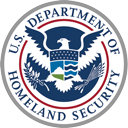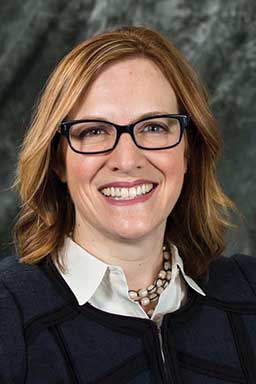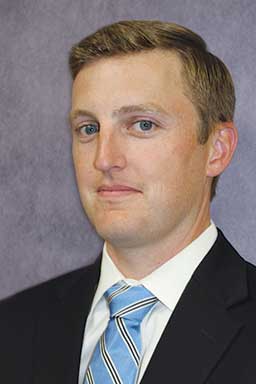
The Department of Homeland Security (DHS) Science and Technology Directorate (S&T) and the National Pork Board recently entered into a collaborative agreement to assess potential methods to disinfect and decontaminate surfaces of African swine fever (ASF) virus. As a proactive measure to address the spread of ASF virus occurring now in other parts of the world, scientists at S&T’s Plum Island Animal Disease Center (PIADC) will evaluate commercial disinfectants and methods to decontaminate porous and non-porous surfaces typically associated with swine production facilities.
The research will be conducted through a funded cooperative research and development agreement between S&T PIADC and the National Pork Board, a program funded by pork producers and sponsored by the USDA. This is part of the work being done by an interagency ASF Task Force to develop vaccines, improve diagnostic tests, and disinfectant testing for this emerging disease threat.
“America’s pig farmers continue to invest in seeking ways to keep ASF and other foreign animal diseases out of this country by partnering with groups such as those at Plum Island,” said Dave Pyburn, senior vice president of science and technology at the National Pork Board. “We’re committed to doing what’s needed to keep our nation’s pig herd protected and our industry safe from this global threat.”
For more about this collaboration and others, contact Dr Dave Pyburn at DPyburn@pork.org or call 515-223-2634.
Study: pork in foreign luggage poses high ASF risk
With African swine fever (ASF) now in more than 50 countries, the United States remains keenly focused on preventing it from entering the country. The latest efforts to keep it at bay includes a new study that looked at the possibility of ASF virus entering via infected pork smuggled in airline passenger luggage.
“We knew that the risk of ASF virus entering the United States is certainly a concern from people traveling or in feed-stuffs from infected countries,” said Dave Pyburn, senior vice president of science and technology at the Pork Checkoff. “This study specifically looked at the risks of ASF being introduced through infected pork in travelers’ luggage.”
The study, funded by the Pork Checkoff and the Swine Health Information Center, found that the risk of ASF entering the country is much higher (183.33%) than 2 years ago when the disease first spread into Western Europe and Asia.
The study results also showed that 5 US airports (see graphic), and especially 2 of them, pose the most risk for incoming travelers with ASF.
To read more about this study, visit www.nature.com. To discuss further with the National Pork Board, contact Dr Dave Pyburn at DPyburn@pork.org or call 515-223-2634.
National Pork Board names two new vice presidents
The National Pork Board recently announced Bryan Humphreys as vice president of producer, state, and industry relations and Jacque Matsen as vice president of strategic communications. Both assumed their new roles on December 16.
Humphreys was most recently with the Ohio Pork Council where he served as CEO since 2014. Matsen was most recently the administrator of the Iowa Economic Development Authority where she served in the marketing & communications division.
To reach them, please contact BHumphreys@pork.org or JMatsen@pork.org.


Second Pig Welfare Symposium deemed success
 The 2019 Pig Welfare Symposium held in Minneapolis last November saw a record crowd with more than 300 attendees
in person or online that represented 16 countries. The event drew pig farmers, veterinarians, animal welfare
experts, social scientists, and other pork industry leaders to share information and discuss what’s new
and happening in pig welfare in the United States and elsewhere.
The 2019 Pig Welfare Symposium held in Minneapolis last November saw a record crowd with more than 300 attendees
in person or online that represented 16 countries. The event drew pig farmers, veterinarians, animal welfare
experts, social scientists, and other pork industry leaders to share information and discuss what’s new
and happening in pig welfare in the United States and elsewhere.
“Our goal was to create a forum for producers, veterinarians, packers, researchers and other stakeholders to share ideas, learn from each other, and to foster dialogue on pig welfare,” said Sara Crawford, assistant vice president of animal welfare for the National Pork Board. “We think that we achieved that.”
Pre-meeting seminars focused on reaching students coming into the industry and Spanish speakers. Breakout sessions featured important welfare topics like pain management, vulnerable animals, and environmental enrichment. One of the most popular topics from the first Pig Welfare Symposium made a return as well: the relationship between euthanasia and caretaker mental health. Post-symposium workshop topics included Day One Pig Care, Euthanasia, Low Stress Pig Handling, and Preparing for a Foreign Animal Disease. In addition, 22 research posters were presented, 10 of which were from students.
The next Pig Welfare Symposium will be held in 2021. To get information regarding presentations from the 2019 symposium, continue to check www.pork.org/pws. For more information, contact Dr Sara Crawford at SCrawford@pork.org or 515-223-2790.
Checkoff messages resonate with dietitians
The National Pork Board recently had another successful engagement with the Academy of Nutrition and Dietetics’ 2019 Food and Nutrition Conference and Expo (FNCE). Attendees had the opportunity to experience a virtual reality farm tour showcasing modern pork production, sample delicious pork recipes, grab a Pork Checkoff-branded giveaway and educational handouts, and sign up for the chance to join an in-person registered dietitian farm tour.
A growing number of meeting attendees proactively sought out the National Pork Board’s booth for the pork samples and premium giveaways, praising the quality of both offerings with comments like, “Your thermometers are the best giveaways,” and “Finally, real food!” The Checkoff team reported that traffic in the booth was up by nearly 50% as the team welcomed nutrition experts into the booth to learn more about pork nutrition, proper pork cooking temperature and the industry’s commitment to sustainability and responsibility through We Care.
A few key metrics from the FNCE meeting included signing up more than 100 registered dietitians who said they were interested in attending in-person farm tours in 2020, distributing 2700 samples of teriyaki pork skewers and pork pocket sandwiches, circulating 900 pork thermometers with 145°F messaging and 1000 insulated pork bags, and distributing educational handouts and recipe cards with information on purchasing pork, lean pork choices, responsible antibiotic use, and sustainability practices.
For more information, contact Adria Huseth at AHuseth@pork.org or 515-223-2632.
 News from the National Pork Board
News from the National Pork Board